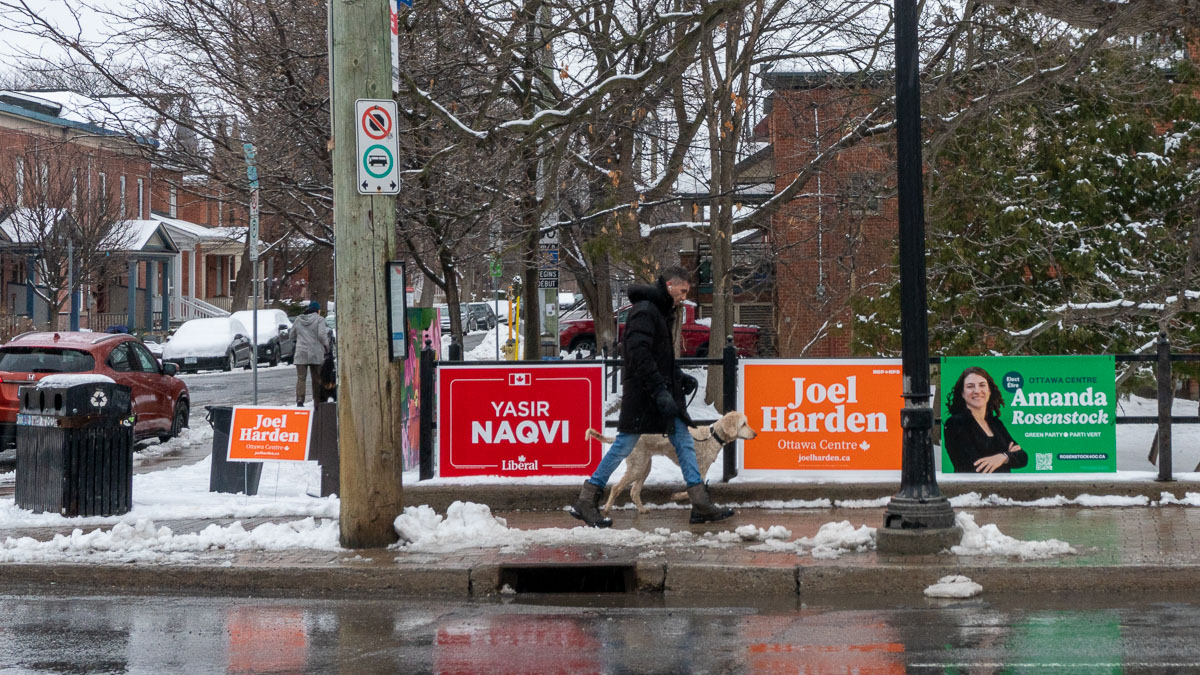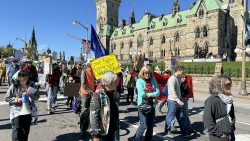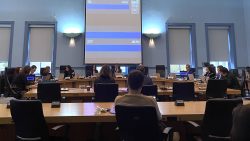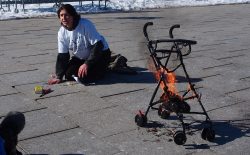Along the streets of Ottawa’s trendy Glebe neighbourhood, election signs are signalling an Ottawa Centre rematch between incumbent Liberal Yasir Naqvi and New Democrat Joel Harden.
Naqvi has held the federal riding since 2021 but was beaten by Harden provincially in 2018 after serving for more than a decade at Queen’s Park.
The April 28 federal election follows on the heels of a win by the NDP’s Catherine McKenney, in February’s provincial election, receiving 56 per cent of the vote. The Liberal opponent, Thomas Simpson, only received about 26 per cent. Also running are Paul d’Orsonnens for the Tories and Amanda Rosenstock for the Greens.
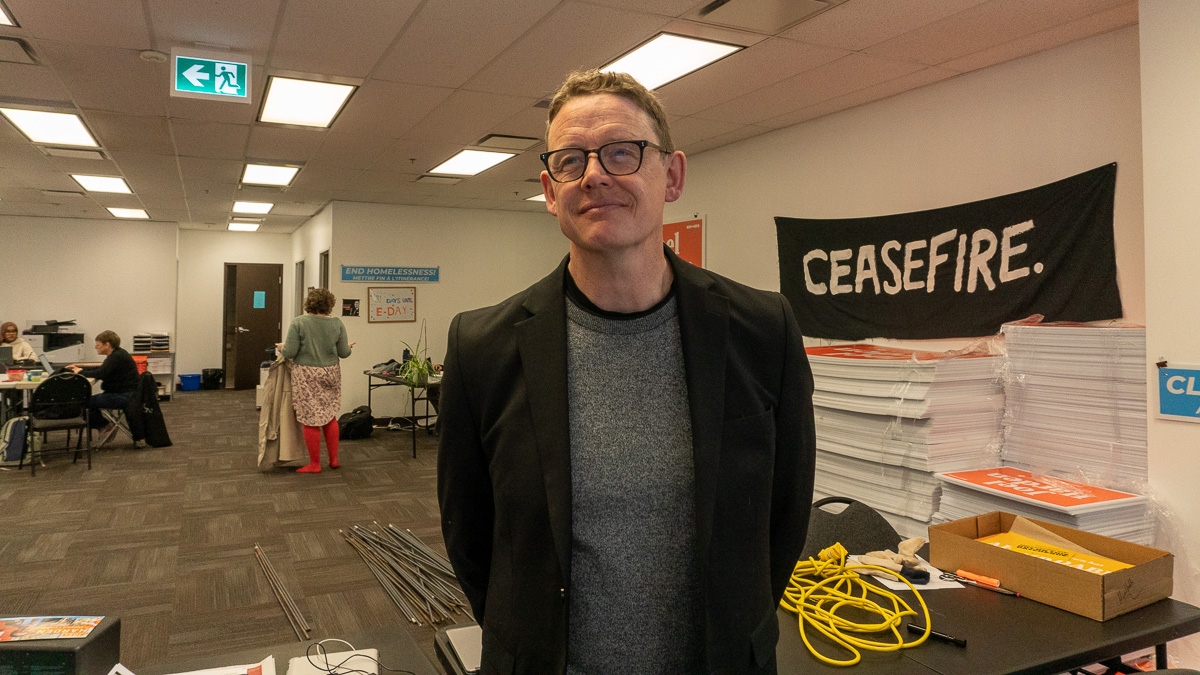
In an interview with Capital Current, Harden said his team is determined to keep the momentum going from McKenney’s provincial win. His team even works out of the same campaign office on Laurier Avenue, where there are still some leftover McKenney yard signs.
“We’ve been told many times that we can’t win, particularly from the red team,” he said. “I love to be underestimated. That’s the best thing, and I thrive on the hubris of others,” he added.
For his part, Naqvi says he isn’t too concerned about his competition.
“Every campaign … that I’ve been part of is not about the person or people who are running against me, it’s about community.”
When asked about McKenney’s success, Naqvi said: “I think the issues were very different in the provincial election than what they are in the federal election.”
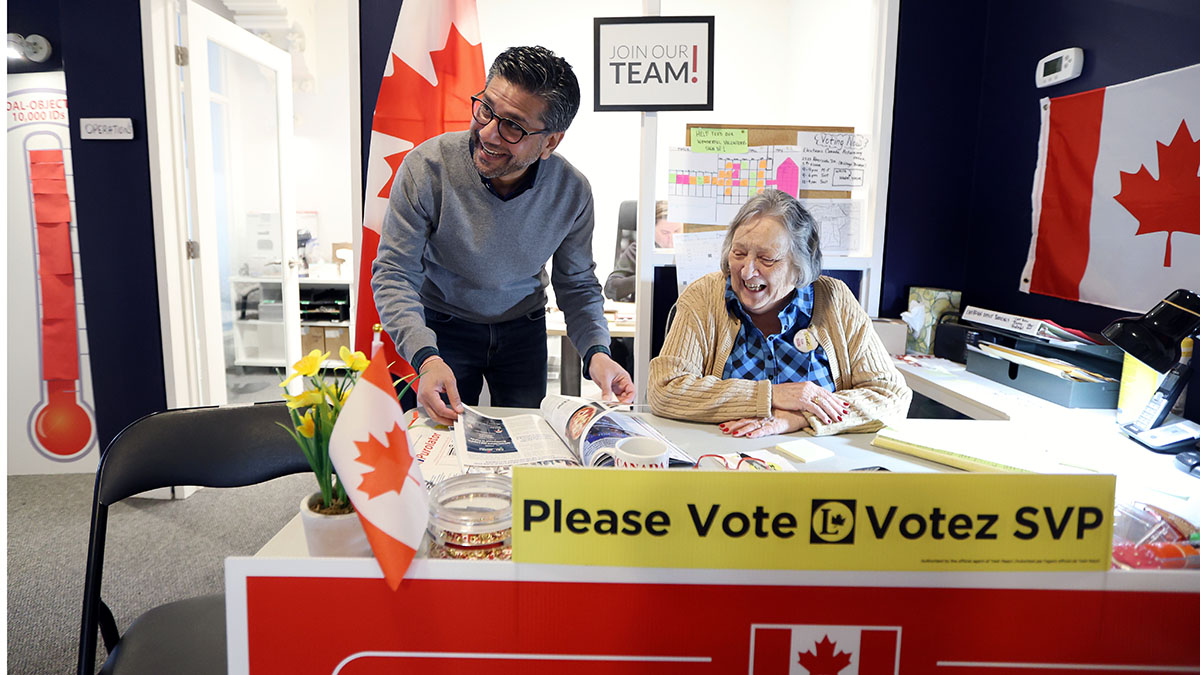
Federally, Ottawa Centre has slightly tilted red, though New Democrats Michael Cassidy, Ed Broadbent and Paul Dewar have held the seat over the years. The riding has only gone Conservative once, in 1978 when Robert de Cotret won the riding in a by-election. But the following year the riding returned to the Liberals, despite the fact that in that general election, Liberal leader Pierre Trudeau, seeking a fourth straight mandate, lost to the Progressive Conservatives, lead by Joe Clark.
A poll from March 24 suggested that half of 2021 NDP voters surveyed would vote Liberal if the election had been on that day.
Some local voters say they driven by a dislike of Conservative leader Pierre Poilievre, who has struggled with favourability numbers.
“I think, to be totally frank, that the Liberals are our only chance of beating Poilievre and the Conservatives,” said Heather Andrews, a Glebe resident who decided to put out a yard sign for the first time ever in support of Naqvi.
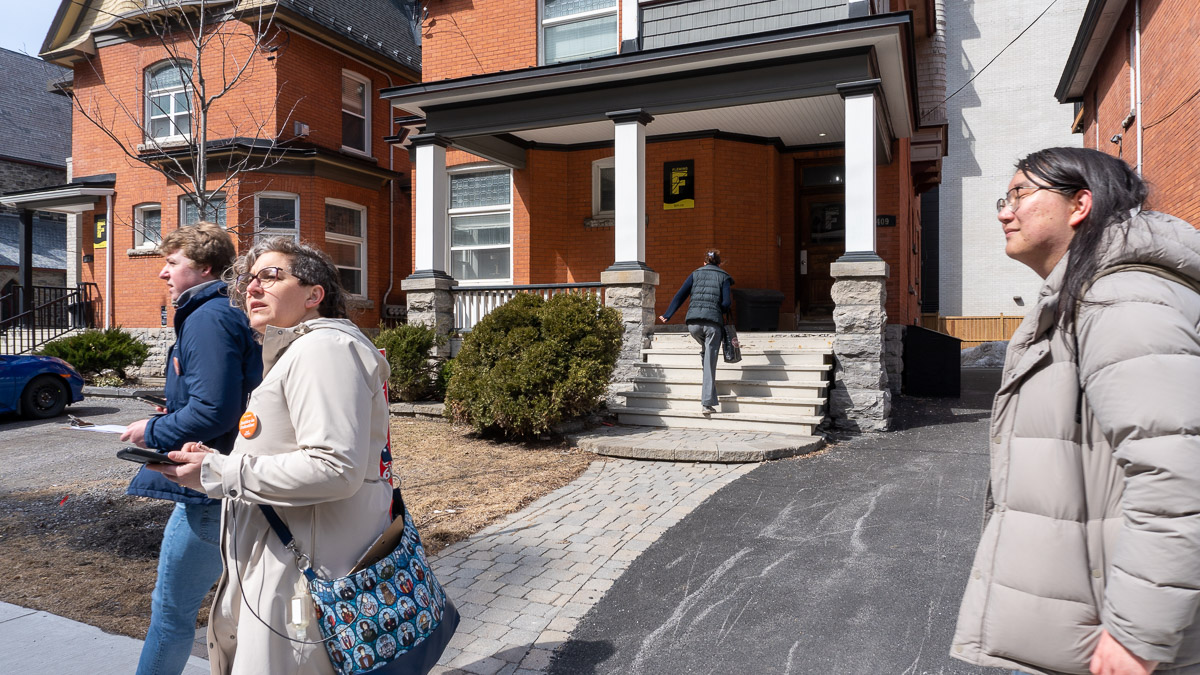
Andrews said her main ballot box issue is Canada’s relationship with the U.S. and how that is intertwined with the economy.
For Gabriel Trozzi Stamou, a Carleton student who has organized for McKenney and Harden, this election represents a larger ideological battle.
“People are looking for someone who’s going to bring a little light into our corner of the world and not stoop to the level of hatred, division and honestly, frankly, just darkness that we’re seeing,” said the 20 year old public affairs and policy student.
A push for participation, but different key issues
Part of Naqvi’s pitch is his past experience as an international trade lawyer as a match for handling today’s changing international environment under the leadership of Prime Minister Mark Carney.
“People are really concerned. They’re anxious. They’re fearful as to what this means. People are not taking it lightly – Donald Trump’s threats of annexing us,” he said.
Harden, too, acknowledged the challenges created by the unpredictable second Trump administration but has positioned himself as someone who would advocate for employment insurance for those impacted by tariffs, price caps and the crackdown on corporate greed.
“I really look at this as not just winning an election; it’s changing the way people think about politics, bringing hope and organizing back into politics, making it less about an ego or a career or a brand, making it more about a movement,” said Harden, who describes himself as an organizer.
On the cost of living, Naqvi attributed a rise in recent years to the pandemic and inflation. He framed Carney removing the consumer carbon tax as a helpful action for Canadians.
“The federal government, before the election, did a lot of things to reduce that burden, but more needs to be done,” he said.
Given the historically low provincial turnout rate in Ottawa Centre, below 50 per cent in February, both candidates emphasized the need for awareness about political participation.
“We have to get people excited about politics again,” Harden said.
Naqvi agreed. “I tell young people, in particular, all the time that the strength of our democracy lies in the quality of people who choose to participate in it.”
Turnout in Ottawa Centre during the 2021 federal election was about 75 pert cent of eligible voters, far above the national average of around 62 per cent.
Though pursuing different policy goals, Naqvi and Harden pointed to the same bright spot in their gruelling campaign schedules: connecting with the people of Ottawa Centre.
“Sometimes [in politics] we suffer from Saviour Syndrome. We suffer from thinking Mr. Carney is going to save us from Trump, or Mr. Poilievre is going to be the fighter for us because things are broken when the solution actually might be right next door. It might actually be the person you met in the grocery store,” said Harden.
“Ottawa Centre is very unique. There’s a lot of smart people with brilliant ideas, and I’m engaged in those conversations, and they give me hope,” Naqvi said.

